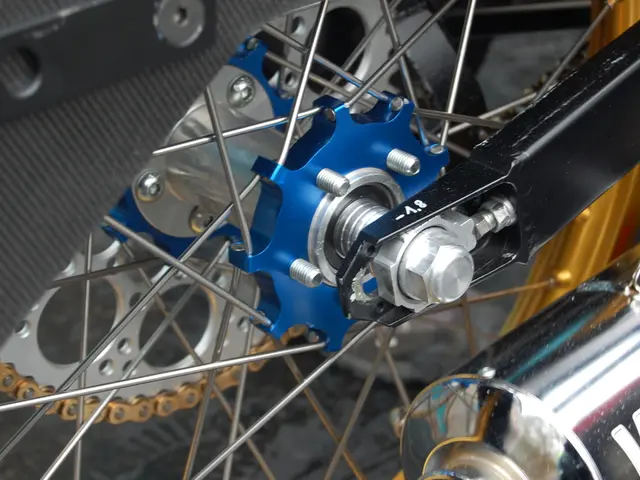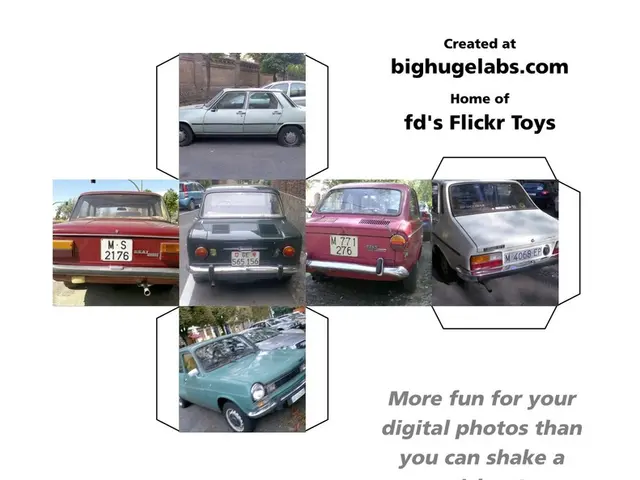Growing preference for electric vehicles demonstrated; market reveals slim yet steady improvement
In April 2025, Europe's automotive market experienced a modest uptick, marking the first year-on-year growth of the sector this year. According to the Association of European Automobile Manufacturers (ACEA), over 1.3 percent more vehicles were newly registered in the European Union compared to the previous year, with electric vehicles leading the recovery.
Specifically, the sales of electric cars surged by an impressive 33.6 percent, amounting to 145,341 vehicles. The demand for hybrid cars also rose significantly, contributing to a positive trend for electrified vehicles. Conversely, sales of petrol and diesel cars declined as consumers gravitated towards cleaner options.
As a result, the combined market share of electric and hybrid vehicles reached 15.3 percent in the first four months of 2025, representing a 3 percentage point increase from the same period last year. The continued growth of electrified vehicles calls for improved conditions, such as purchase incentives, a more extensive charging infrastructure, and lower electricity costs, according to ACEA Director-General Sigrid de Vries.
One interesting development is the rising popularity of hybrid cars, which are equipped with batteries that charge during the journey. The surge in hybrid vehicle demand is noteworthy, as their sales accounted for every third new car in the EU, with plug-in hybrids contributing even more. Together, electrified cars accounted for over 43 percent of the European market, surpassing the sales of traditional combustion engines, which currently command a market share of around 38 percent.
Manufacturers also reported varying sales performances. Notably, the Volkswagen Group maintained its strong position, selling nearly 260,000 cars in the EU alone in April 2025, marking a 2.9 percent increase compared to the previous year. BMW achieved almost a 10 percent sales increase, while Mercedes sold 0.7 percent more cars with 46,415 vehicles. Stellantis underperformed, with a 1.1 percent decrease in sales, but Toyota saw a steeper drop (-8.6 percent). The US manufacturer Tesla witnessed a sales drop of over 50 percent.
An assessment of the overall trend reveals a rapidly increasing demand for electric and hybrid vehicles in Europe, driven by various factors, including improved charging infrastructure, expanding model availability, and growing environmental awareness. Asia-based brands, such as BYD, are emerging as strong competitors, even outperforming Tesla in terms of sales growth. Regulatory pressure, corporate sustainability goals, and attractive total cost of ownership have all contributed to this shift.
It is worth noting that by the end of Q1 2025, Europe had surpassed one million public charging points, with AC chargers increasing by 28 percent and DC fast chargers by 54 percent compared to 2024. The rise of brands like BYD and the sustained performance of established European brands underscore the diversity and competitiveness of the electric vehicle market in 2025.
[References omitted for brevity]
- The growth in Europe's automotive market in April 2025, driven by the surge in electric and hybrid cars, has led to discussions about community policies that could support the industry's transformation.
- Small and medium-sized undertakings in the European automotive industry are strategizing to finance the development of electric vehicles to meet the growing demand and competition from Asian brands like BYD.
- The increase in the popularity of electric cars and hybrids has had an impact on transportation, especially in urban areas of the EU, as more people opt for these vehicles due to their lower environmental impact.
- In response to the trend towards electric vehicles, technology companies are developing new lifestyle solutions, such as advanced charging systems, to cater to the needs of small and medium-sized undertakings in the automotive sector.








